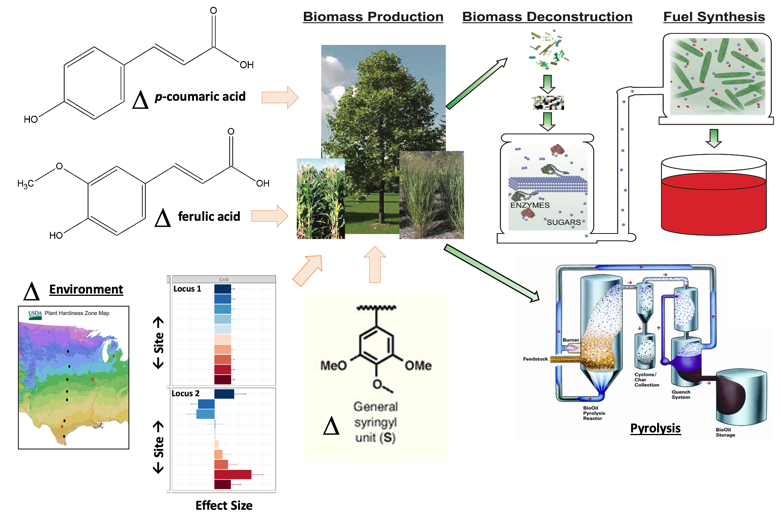Presenter: Laura Bartley, Ph.D. (Associate Professor, Washington State University/2019–2020 Visiting Associate Professor, RISH, Kyoto University)
Title: How genes and growth conditions alter grass biomass for biochemical and thermal biofuel processing
Place: Online
Associated Mission: Mission 5-2 (Establishing a Society with Reduced Dependence on Fossil Fuels)
If you would like to participate, please e-mail me your name, affiliation and e-mail address by 10 am on the day.
(Open Seminar Office: rish-center_events@rish.kyoto-u.ac.jp)
Abstract
Biomass from terrestrial plants, mostly consisting of cell walls, can be converted into fuels and chemicals to reduce fossil fuel dependence. Both biochemical and thermochemical biofuel conversion processes can be made more efficient by optimizing biomass composition. In a first example, we have identified acyltransferase enzymes responsible for incorporating phenolic acids into grass cell walls. Increasing acyltransferase expression changes cell wall composition and in some cases improves accessibility of cellulose for breakdown to sugars to be fermented into fuels by microbes. In another example, we have found that transgenic manipulation of switchgrass cell walls to reduce phenolic acids and syringyl lignin, improves thermal fractionation of switchgrass during fast pyrolysis. In a third example, we are examining natural variation of switchgrass biomass composition as induced both by genetic variation and growth location. Across ten sites representing 14 degrees of latitude, biomass composition varies significantly, but without a simple latitudinal pattern. We found 121 genomic regions (quantitative trait loci, QTL) that control forage/digestibility compositional traits. Of particular interest for biofuel production, about 40 % of the QTL have consistent effects across all sites; whereas, the remaining QTL vary, in some sites having no effect or even antagonistic effects depending on sites. The results inform strategies to optimize biomass composition for particular conversion platforms across plant growth ranges.
 Fig. 1 Strategies to improve biomass for biochemical biofuel production (top) or thermochemical biofuel production (bottom) by changing (Δ) phenolic acids, lignin monomer ratios, and understanding environmental effects on composition.
Fig. 1 Strategies to improve biomass for biochemical biofuel production (top) or thermochemical biofuel production (bottom) by changing (Δ) phenolic acids, lignin monomer ratios, and understanding environmental effects on composition.
PDF file (163 978 bytes) | Top
17 November, 2020


